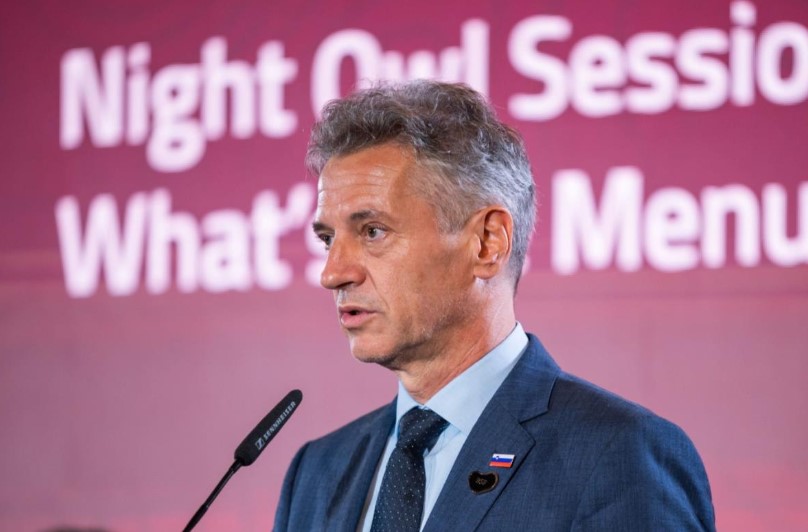Following the news that a group of Ivančna Gorica residents have formed a self-proclaimed village guard, as they no longer see any other way to deal with the increasingly frequent burglaries and thefts, the question arises – isn’t the government obliged to take care of the security of its citizens? Former Director of the Police, Dr Anton Olaj, among others, believes that this is a “big minus” for both the police and the government, as they should both be looking after the safety of the citizens. “It is not the task and duty of self-organised villagers to protect the community. It should not have come to this,” he wrote on Twitter.
Ivančna Gorica residents have formed a village guard on their own initiative to protect themselves from the increasing number of burglaries, thefts and damage, according to a recent mainstream media report. Dr Anton Olaj, who believes that the Golob government’s treatment of migrants is actually the implementation of the Marrakesh Agreement, of which he has been quite critical in the past, and explains in concrete terms what the government should do to adequately protect its citizens, believes that this should not be happening, as the security of citizens is the responsibility of the state.
The former Director of the Police believes that Golob’s open-door policy is directly linked to the increased arrival of migrants. “This is pure logic, because there can be no other way. It is an indirect invitation to people involved in smuggling to reanalyse their migratory routes through Slovenia, which has become very lenient on this migration issue with the new government. I see this as a clear implementation of the so-called Marrakesh Agreement […], where migrants are treated in a very specific way, regardless of their actions,” he said. The agreement, as we have previously reported, includes several controversial points. Olaj pointed out that he was very critical of the agreement: “At the time, the public was quite upset, and the government of the time, led by Mr Šarec, made a statement that this agreement was not binding for Slovenia, but in practice that is not the case. The measures under this Marrakesh Agreement are still being implemented.”
Dr. Olaj on the great cultural differences
Immigrant violence is increasingly common. On several occasions, groups of migrants have been caught with large quantities of weapons by the Serbian authorities, and there have even been shootings between them. Olaj recalled the case of police officer Damir Golobič, who was murdered with a machete by a deranged German migrant, which the media then tried to cover up for the public. “The Slovenian policeman who was thrown off the train was lucky he wasn’t badly injured. This shows the character and the type of people who are coming here,” Dr Olaj pointed out, adding that “these people come from completely different cultures, different landscapes, where there is a power politics. We want to talk about law, but they express their power through physical activities. These are cultures that do not go together. Some are actually willing to integrate into society, which is great, but there are many who are not, which is worrying.”
“This is Lampedusa, a quaint Italian island with about 6,000 residents. 8,000 illegal migrants from Africa stormed the island on a single day this week. You can count on your amputated arm all the women and children in this crowd,” a Twitter profile called End Wokeness wrote in a recent post, also publishing a video of thousands of illegal African migrants coming to Italy – in the last week alone.
“These are global issues. It is the result of ten years of clever politics and people in positions of responsibility in the European Union and in individual countries who are in some way obliged to implement such measures, pursuing the goal of a new world order, a world without borders, which is in some way a utopia, an experiment at the expense of nations,” said Dr Olaj, who believes that a small change to a European regulation could stop some of the migration.
A change in demographic policy will follow
Dr Olaj pointed to a change in the demographic policies of nations as a worrying long-term development. A good example is the Scandinavian countries, from which, he believes, we are not far removed. “Fortunately, we are not generous enough, or we are not rich enough, and migrants tend to go elsewhere. But when this area becomes saturated, even economically – the German economy is shrinking, for example – there will be conflict, which is not good,” he explains.
How can a country protect its citizens?
According to Dr Olaj, there should be a serious decision at the level of prime ministers that “Croatia protects the Schengen border, which it has taken over the protection of, and the Slovenian-Croatian border should be controlled 24 hours a day with mixed patrols, which means that migrants who get through the existing regulations in an informal way with an informal announcement should be returned to the country from which they came. This would mean sending people back to Croatia,” because once the police catch them inside Slovenia, he said, it is already too late, and there is no point in writing them up. “When migrants stay inside the country, they are a type of risk,” Dr Olaj concluded.
Tanja Brkić


